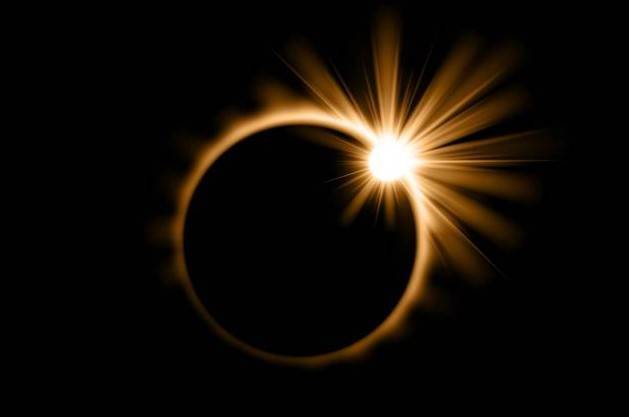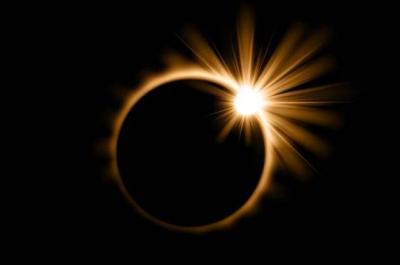The year 2024 is set to be filled with a series of astronomical phenomena, as astronomy enthusiasts and those fond of eclipses will have the opportunity to witness a lunar eclipse and a solar eclipse in the remaining months of the year. It is important to note that solar and lunar eclipses can be used to determine the beginnings and endings of lunar or hijri months, as these phenomena clearly reflect the moon's movement around the Earth and the Earth's movement around the sun.
Specialists and amateur astronomers around the world are preparing to observe and follow four solar and lunar eclipses in the current calendar year 2024, with one of them visible in Egypt and the Arab region. Regarding the second expected lunar eclipse in 2024, it will occur on Wednesday, September 18, and is a partial eclipse. It will be visible in the skies of Egypt, Saudi Arabia, and the Arab world, where only 8% of the moon's disc will be within the Earth's shadow at the peak of the eclipse, allowing for a noticeable darkness on the moon's surface. This partial lunar eclipse will last for one hour and three minutes and will also be visible in most parts of North America, Mexico, Central America, South America, the Atlantic Ocean, and most of Europe and Africa.
As for the second and final solar eclipse of the current year, it will take place on Wednesday, October 2, and is an annular eclipse not visible in Egypt and Saudi Arabia. Residents in the western half of the Earth are preparing to observe this eclipse, as the path of the annular eclipse will mainly cross the Pacific Ocean, limiting visibility from land to a few locations.
It is worth mentioning that the world experienced a total solar eclipse on the last night of Ramadan, specifically on April 8, 2024, which was fully visible over the skies of the United States, causing darkness for several hours.
### The Impact of Solar Eclipses on Human Nerves
Many natural phenomena that occur daily on our planet may have effects on health, of which we remain unaware. Among these phenomena that significantly impact human health are magnetic storms and solar eclipses.
A Russian expert explained how magnetic storms and solar eclipses can affect human health, sometimes resulting in severe symptoms. According to media reports, Dr. Ekaterina Demyanovskaya, a neurology specialist, stated that natural phenomena affect the nervous system and attribute weather sensitivity to disruptions in the autonomic nervous system.
She added, "Weather factors are believed to induce slight changes in the body that impact the autonomic nervous system. As a result, even healthy individuals may experience unexplained stress, increased anxiety, sensitivity to physical pain, and other external factors during geomagnetic storms or solar eclipses."
Demyanovskaya pointed out that changes in the geomagnetic field can affect the condition of blood vessel walls and blood coagulation, stating, "They can slow blood flow in capillaries, increase pressure within the joints, eyes, and skull. Hence, during geomagnetic storms, sensitive individuals may complain of high or low blood pressure, dizziness, headaches, and pain in the eyes and joints."
She noted estimates suggesting that approximately 70% of strokes, heart attacks, high blood pressure cases, and heart attacks specifically occur during geomagnetic storms. According to her, solar eclipses pose risks to individuals with arrhythmia, osteoporosis, neuromuscular diseases, and kidney disorders.




